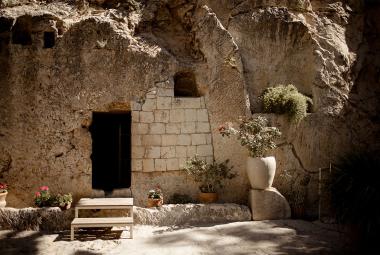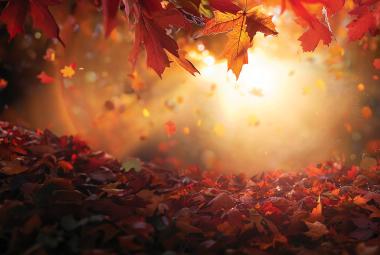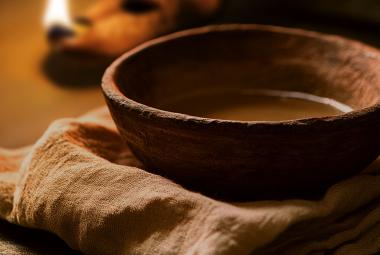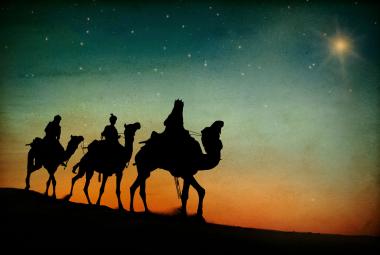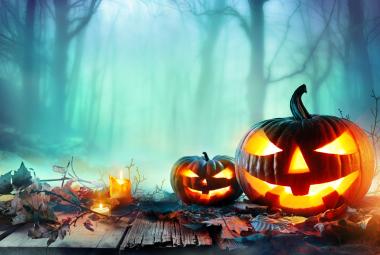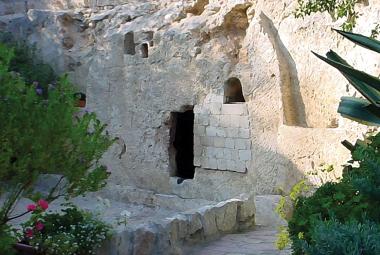This month, with our celebration of Thanksgiving, we initiate our holiday season: a time for families and a time of reflection.
This unique day reflects perhaps more than any other our national religious character.
HistoryThere are, actually, numerous claims to the Thanksgiving.
One of the earliest recorded celebrations occurred a half-century before the Pilgrims landed at Plymouth in 1621. A small colony of French Huguenots established a settlement near present-day Jacksonville, Florida. On June 30, 1564, their leader, René de Laudonnière, recorded that:
We sang a psalm of Thanksgiving unto God, beseeching Him that it would please Him to continue His accustomed goodness towards us.1
In 1610, after a hard winter called the starving time, the colonists at Jamestown called for a time of thanksgiving. This was after the original company of 409 colonists had been reduced to 60 survivors. The colonists prayed for help that finally arrived by a ship filled with food and supplies from England. They held a prayer service to give thanks.
The Thanksgiving celebration was not originally commemorated yearly. An annual commemoration of thanks came nine years later in another part of Virginia.
On December 4, 1619, 38 colonists landed at a place they called Berkeley Hundred [in Virginia]. We ordain, read an instruction in their charter,that the day of our ship's arrival...in the land of Virginia shall be yearly and perpetually kept holy as a day of Thanksgiving to Almighty God.
While none of these Thanksgiving celebrations was an official national pronouncement (since no nation existed at the time), they do support the claim that the celebrations were religious.
Thanksgiving began as a holy day, created by a community of God-fearing Puritans sincere in their desire to set aside one day each year especially to thank the Lord for His many blessings. The day they chose, coming after the harvest at a time of year when farm work was light, fit the natural rhythm of rural life.
By the end of the 19th century, Thanksgiving Day had become an institution throughout New England. It was officially proclaimed as a national holiday by President Abraham Lincoln on October 3, 1863:
No human counsel hath devised, nor hath any mortal hand worked out these great things. They are the gracious gifts of the most high God, who, while dealing with us in anger for our sins, hath nevertheless remembered mercy... I do, therefore, invite my fellow citizens in every part of the United States, and those who are sojourning in foreign lands, to set apart and observe the last Thursday in November next as a day of Thanksgiving and praise to our beneficent Father who dwelleth in heaven.4
Ever since this pragmatic and commercial approach to Thanksgiving was promoted, its original meaning has steadily been lost.Canada first adopted Thanksgiving as a national holiday in November 1879, and it is now celebrated there annually on the second Monday in October.
Our Unique Blessings
It is particularly appropriate for us to examine our most unique blessing: our sacred heritage. I believe that you and I are beneficiaries of a legacy, the stewardship of which we will be held accountable before the Throne of God.
Ours is a unique heritage. Some receive it through birth. Others transcend hardship to claim it, but all of us are stewards of great ideas and traditions. Knowledge of them and respect for them have served us like protective armor, yet we are to countenance the creation of generations who will be naked and defenseless. We are in a war - one that began long ago and has now honed in on its ultimate objective: America's soul.
Schoolchildren in other lands grow up imbued with legends handed down before the emergence of written history. American teachers have areal story to tell: that of America's founding, which in the absence of common ethnic roots - is the central binding agent in the fabric of this country. Our country, as opposed to others which evolved over a long time, was deliberately created in a specific way. People prayerfully sat down and figured out what it ought to be.
Education is always the first target. The organized dismantling of our educational system is not just a "dumbing" down, but something even more sinister than that. It is the un-teaching of history; the concerted effort by our historians to strip America and the West of its accomplishments, and the genius of its traditions. History is the national memory.
Our American youth have thus been disenfranchised from our Christian heritage. How will one find truth if he is convinced it doesn't exist? Our commentators, our politicians, and our media cannot discern the significance of maintaining a rule of law.
Our Media
The most disturbing aspect of these contraventions of our traditional heritage is the duplicity of the mass media. The very ones with the mandate to be the guardians of truth are manifestly part of the problem. The media’s pursuit of its own self-serving agenda has denied the public their access to today's realities and have prostituted one of democracy's most sacred institutions.
Originally observed to acknowledge the provision of God, let us also make this national holiday a very special time to thank Him for our own provision—our families, our sustenance, and, above all, our redemption in His Son!
Let's also pray that He might restore the religious freedom that those early Pilgrims cherished so dearly—and that the current enforced paganism that has invaded our land be curtailed. This country is now becoming that which the Pilgrims risked their very lives to flee.
Notes:
1. Diana Karter Appelbaum, Thanksgiving: An American Holiday, An American History, Facts
on File Publications, New York, 1984, pp.14-15.
2. Jim Dwyer, ed.,Strange Stories, Amazing Facts of America’s Past, The Reader ’s Digest
Association, Inc., 1989, Pleasantville, NY, 1989, p.198.
3. Appelbaum , Thanksgiving , p.186.
4. Gary DeMarr, America’s Christian History: The Untold Story, American Vision
Inc., Atlanta GA, 1995, p.205.
5. Edmund H. Harvey, Jr., ed., Readers Digest Book of Facts, Reader ’s Digest Association, Pleasantville NY, 1985, p.125.

